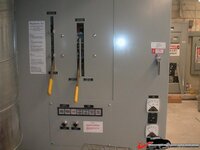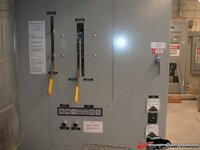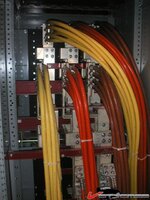DeeVeeEight
Fast Pedalphile
I am no expert on this, but common sense tells me NOT to plug my genny into the house wiring without a proper power switching/isolation system of some kind. When I do lose power, I simply run a 12/2 ext. cord from my genny to a 6 outlet power strip, then I plug in the fridge, a light or two and the TV and wait for the power co. to make repairs.
My house is over 100 yrs old and I do not trust that Joe Homeowner has not made a few unqualified improvements over the years.
My house is over 100 yrs old and I do not trust that Joe Homeowner has not made a few unqualified improvements over the years.





